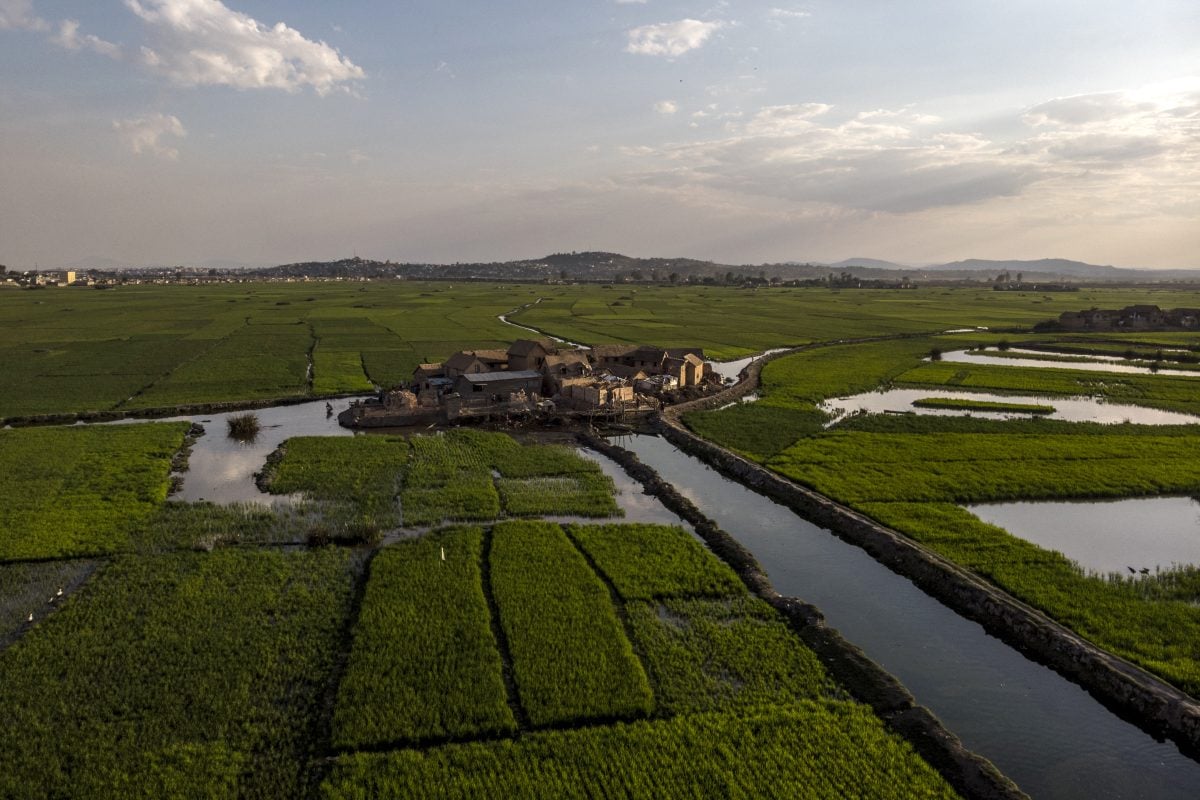US-based company Mati Carbon collected a $50m cheque last week after winning the grand prize in the XPRIZE Carbon Removal competition. The prize, sponsored by Elon Musk’s philanthropic foundation, is the world’s largest scheme to incentivise technologies that remove carbon from the atmosphere.
Mati Carbon picked up the award in recognition of its enhanced rock weathering technology. Its solution, which it has pioneered in India and is now piloting in Zambia and Tanzania, is intended to generate carbon credits by durably removing carbon from the atmosphere while improving soil health.
“It’s a win-win for the farmer, it’s a win for the climate, and it’s a win for the companies which are buying these credits,” says Shantanu Agarwal, the company’s founder and CEO.
The technology speeds up a process that occurs naturally but takes thousands of years. In nature, as certain types of rock are exposed to the atmosphere, chemical reactions take place that eventually lead to the formation of mineral compounds such as limestone. In this way, carbon is removed from the atmosphere and sequestered in a mineralised form.
Enhanced rock weathering involves crushing the types of rock that react best with carbon dioxide, such as basalt, so that the surface area of the rock that is exposed to the atmosphere is increased. The powder is then spread onto fields, where it reacts with carbon dioxide in the air and with water. As well as sequestering carbon much faster than would happen naturally, this process also releases important nutrients that boost soil fertility.
Jake Jordan, Mati Carbon’s chief science officer, says that rice paddies in India that have used the company’s rock powder are reporting an increased yield “in excess of 20%”.
“This is a service that we provide for free [to farmers], without any change in any of the farmers’ practices or land use. So that 20% plus yield increase actually does translate into 20% plus income increase.”
Agarwal adds that even better results are expected on the most degraded soils, including in parts of Africa that have experienced long-term drought.
“The more degraded the soils, the better the results,” he says, claiming that the company is seeing huge demand for its powder in Zambia after promising results of initial field testing.
A “crazy” goal
The reason that Mati Carbon can deliver this rock powder to farmers free of charge is because its business model is based on the sale of carbon credits.
Despite the ongoing volatility in the carbon markets, which have been hit by multiple controversies in recent years, Agarwal says that demand for credits is robust. Although the Trump administration has set about removing pressure to act on climate change, he says that US corporate giants such as Microsoft have announced huge purchases in recent weeks.
And the firm claims that enhanced rock weathering credits have a crucial advantage over reforestation or forest protection credits: it says that credit buyers can feel confident that mineralised carbon will be safely sequestered for millions of years.
“Simply planting trees is such a non-durable solution,” says Jordan. “The fact of the matter is, at any point in time, you could lose that carbon that’s tied up in that biomass.”
Alongside revenues from credit sales, Mati Carbon does expect to rely on grant funding to help cover the upfront costs of establishing new projects in Africa.
“Grant funding is key to us opening up into new areas,” says Agarwal. “If you don’t have this sort of funding coming into these countries, there is no way for technology like this to prosper.”
In India, Agarwal says that Mati Carbon has already progressed beyond a reliance on grant funding and is now financing its work with credit sales and commercial debt. In Africa, he expects to reach this stage after three or four years.
The ultimate goal is to expand to cover around 30 countries in the Global South over the next five years, around half of which will be in Africa, and to support 100m smallholder farmers over the next two decades.
“It’s a crazy, unreasonable goal, in some ways, going after 100m smallholder farmers,” admits Agarwal. “But I think that’s the need. If we don’t do this, then who would?”
Want to continue reading? Subscribe today.
You've read all your free articles for this month! Subscribe now to enjoy full access to our content.
Digital Monthly
£8.00 / month
Receive full unlimited access to our articles, opinions, podcasts and more.
Digital Yearly
£70.00 / year
Our best value offer - save £26 and gain access to all of our digital content for an entire year!

 Sign in with Google
Sign in with Google 



